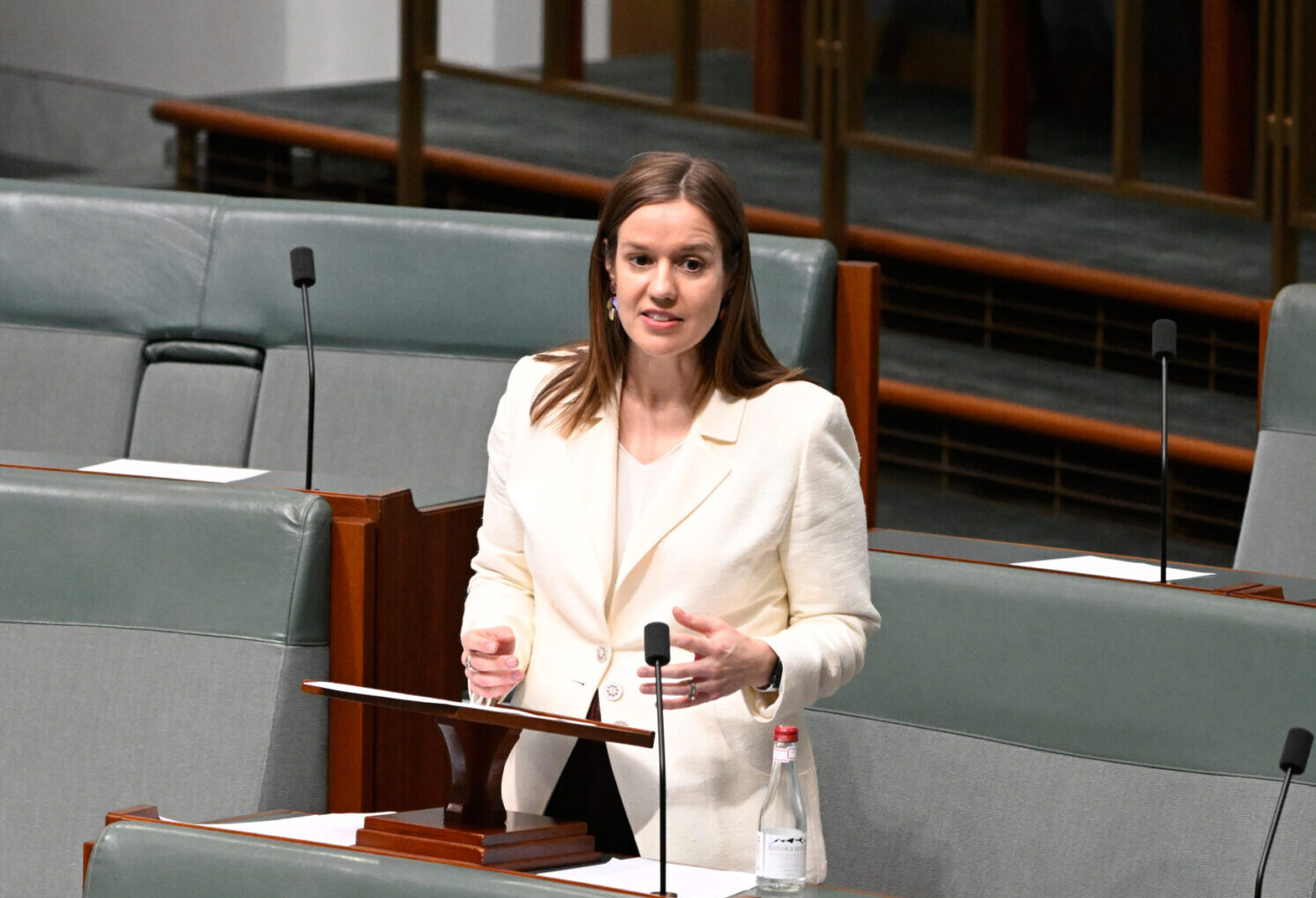Thanks to the member for Kooyong for raising this motion. She and I represent neighbouring electorates, and I know both of our communities care very deeply about matters of integrity in politics. I know that, for many people in Jagajaga, integrity was one of the big issues that they raised with me, particularly during the course of the last term of the last government and during the last election campaign.
They did see what was unfolding in this place under the leadership of the then Prime Minister, the member for Cook. They did see the sports rorts, which affected groups in my community, where the Liberals and Nationals oversaw funding going towards projects to the detriment of other projects, in communities like mine, that were high-quality proposals. They saw the airport rort where the Morrison government reportedly paid 10 times the actual value of land for the Western Sydney airport, which cost $30 million. I could go on, but I won’t. It wasn’t until the election of our government that we also realised that the member for Cook had multiple secret ministries.
The member for Kooyong is right. This type of behaviour does undermine trust in the work of this place and, more broadly, trust in our democratic institutions. It’s something we all have to guard against. I think that the attention that our government has brought to that, since we came into office, is a marked difference from what we saw from those in office previously.
It did take a change of government, a Labor government, to introduce a national anti-corruption commission and have that commission delivered. It is a change that, absolutely, Australians had been calling for. I also acknowledge the strong advocacy and work of the member for Indi in establishing the National Anti-Corruption Commission—a strong, independent watchdog. In the few short months since it commenced operations the commission has worked widely across the federal public sector to ensure that people are aware of its work and its areas of focus, including the corruption risks in procurement, recruitment and promotion.
The commission has also said that this year it will be focusing on efforts of conflicts of interest, ethical decision-making and electoral issues. Given the interest in the work of the NACC, it’s also worth highlighting the protections that the NACC includes for whistleblowers. Anyone who makes a referral, provides information or gives evidence about a corruption issue is protected from civil, criminal or administrative liability, including defamation proceedings, except for situations where it relates to their own conduct. There are many elements to the work of the NACC, and more broadly, that are happening to strengthen integrity in this place and the federal political sphere. The introduction of the National Anti-Corruption Commission is, in fact, one of the most significant reforms in decades and one that I know that my community is very pleased to see delivered.
Lobbying reform as an issue is one that has been raised by many civil society organisations and was raised, for me, during part of my work during the inquiry into the 2022 federal election that I led as chair of the Joint Standing Committee on Electoral Matters. While lobbying was beyond the work and the scope of that committee, I acknowledge the concerns that have been raised. It is important, as I said, that this parliament works to ensure that we don’t see a loss of trust in this place or, more broadly, in the democratic institutions that do make our democracy as strong and unique as it is. That is why, through our JSCEM inquiry, we have made several recommendations focused on strengthening transparency and trust in our electoral system, including real-time disclosure of donations, lowering the donation disclosure threshold, caps on donations and spending, and many more. They are important reforms and they do go to these issues of transparency, trust and how we want to see our democracy operate.
Of course, it was under the Rudd-Gillard government that the Lobbying Code of Conduct was introduced. That meant that, for the first time in this place’s history lobbyists meeting with government representatives needed to register their activities and ensure compliance with strict transparency rules. The code requires government representatives to meet only with registered lobbyists, and it places requirements on lobbyists to report breaches of the code, to register and to comply with the principles outlined by the code.
I know that many Australians, including people in my community, are deeply interested in integrity in politics. It is an issue that matters. The National Anti-Corruption Commission was a big step forward and a major reform that was well overdue. There is more work to do, and I look forward to continuing to engage in the broad discussions we have about that in this place and working with others to continue to enhance integrity.
